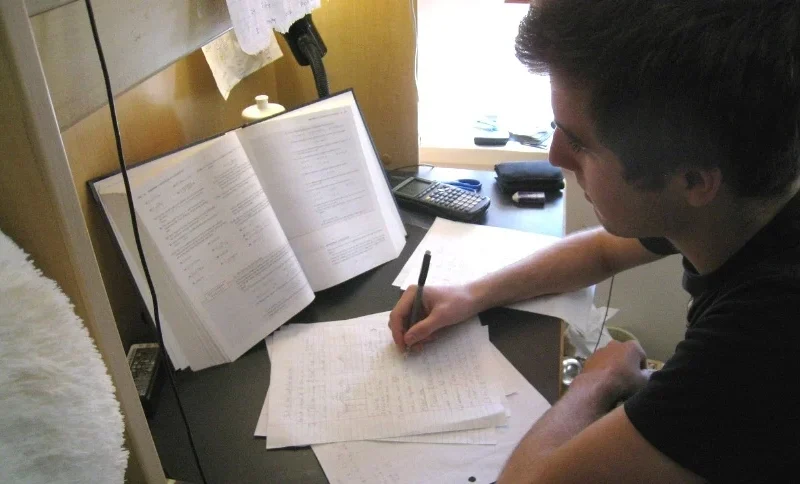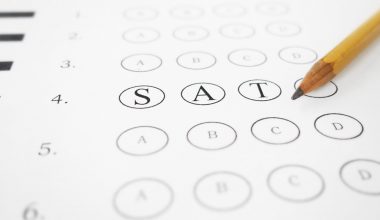Exams often come with a mix of anticipation and anxiety. While they can be daunting, here is day of exam tips, knowing that with the right strategies and a belief in your abilities, success is within reach.
As Christian D. Larson wisely said, ‘Believe in yourself and all that you are; know that there is something inside you that is greater than any obstacle.’
In this article, we’ll arm you with some proven tips to help you ace your exams and emerge victorious on the big day.
Table of Contents
- Best Day of Exam Tips
- #1. Get a Good Night’s Sleep
- #2. Eat a Healthy Meal
- #3. Arrive Early
- #4. Bring Necessary Supplies
- #5. Stay Calm
- #6. Read Instructions Carefully
- #7. Start with the Easy Questions
- #8. Budget Your Time
- #9. Start with Confidence
- #10. Answer Every Question
- #11. Stay Focused
- #12. Review Your Work
- #13. Stay Positive
- #14. Stay Hydrated
- #15. Use Your Time Wisely
- #16 Stay Until the End: Proofread your Answers
- #17. Post-Exam Mindset
- Additional Day of Exam Tips
- FAQs on Day of Exam Tips
- Conclusion: Day of Exam Tips
- Reference
- Recommendation
Best Day of Exam Tips
Here is the best day of exam tips that can aid your entire exam exercise.
#1. Get a Good Night’s Sleep
Research has proven that Sleep is good for your general well-being and especially for your brain work. This is why we advise you to get a good night’s sleep as one of the exam day tips.
The goal should be to aim for at least 7-8 hours of sleep the night before the exam. A well-rested mind performs better and is more calculative.
Adequate sleep plays a crucial role in your cognitive functioning, memory consolidation, problem-solving skills, stress reduction, physical and mental well-being, etc.
The first tip for a good exam experience is a good and adequate night’s sleep. So, quit bothering about the exam day and give your body adequate rest.
Check this out: Can You Get a Scribe For Exams?
#2. Eat a Healthy Meal
Eating healthy is vital for your general well-being alongside your performance in your exams. A healthy meal on the day of the exam should be something that will give you sustained energy and help you focus.
It’s best you avoid sugary foods and drinks, which can make you feel jittery and anxious. Instead, opt for complex carbohydrates, such as whole-wheat bread or oatmeal, and protein, such as eggs or lean meat.
In addition, fruits and vegetables are also a good choice, as they are packed with nutrients that will help you stay energized and alert. Also, aim to eat breakfast at least 2-3 hours before the exam, so you have time to digest your food before the test begins.
Don’t eat too much before the exam. Eating a large meal can make you feel sluggish and uncomfortable. Instead, eat a moderate-sized meal that will give you enough energy.
#3. Arrive Early
Another vital day of exam tips is arriving early. This tip works like magic and is essential for your entire exam experience. It is important you arrive at your exam venue early.
Arriving early will give you time to relax and collect your thoughts. This is especially important if you’re feeling nervous or anxious about the exam. This allows you to take a few minutes to relax and clear your so as to aid you focus and perform your best.
When you arrive early, you get time to familiarize yourself with the testing environment alongside asking necessary questions if you have any. This includes finding your seat, getting your materials ready, and understanding the instructions.
Finally, arriving early enables you to become more familiar with the environment thereby reducing stress or worry.
#4. Bring Necessary Supplies
Every exam has supply requirements that you need to carry out such an examination. Bringing necessary supplies is a practical and often overlooked exam day tip.
However, having the right materials on hand can make a significant difference in your exam experience. Specific supplies you need to bring will vary depending on the exam. This is why you need to be aware ahead of time and prepare all the supplies.
It is a good idea to pack your supplies the night before the exam. This will help you avoid forgetting anything important on the day of the exam. And on the day of the exam, it is vital to check if you are omitting any supply.
#5. Stay Calm
Staying calm and having your emotions in check is an important exam-day tip. Maintaining a calm and composed demeanor can significantly impact your performance and enable you to comfortably write your exams.
This tip improves your focus, reduce test anxiety, enhance cognitive functioning, and enable efficient time management.
To stay calm during your exams, you can practice relaxation techniques, initiate positive self-talk, visualize success, stay away from negative influences, and focus on the present.
Finally, this tip will help you a long way and enable you to write your exam with a relaxed and well-functioning mind.
#6. Read Instructions Carefully
Instructions are vital for successfully writing an exam and acing. It is one of the most fundamental yet often overlooked exam day tips.
Reading your exam instructions carefully is an important exam day tip as it enables you to understand the format.
Exam instructions provide information about the format of the test, including the number of sections, questions, and time constraints. This knowledge helps you allocate your time and energy appropriately.
Instructions may contain specific rules or guidelines for the exam, such as permitted materials, calculators, or reference sheets. Failing to follow these rules can result in penalties or disqualification.
It also provides question-specific guidance. Instructions often contain valuable clues or hints about how to approach certain types of questions. Ignoring these hints can lead to unnecessary errors.
Finally, enables you to prevent costly mistakes such as answering too many questions or providing too much information when a concise answer is required.
Check this out: Can You Reject Your Firm Choice on Results Day | Guide for 2024
#7. Start with the Easy Questions
Starting with the easy questions is a wise exam-day strategy that can enhance your confidence and efficiency. This can boost your confidence and allow you to quickly accumulate correct answers.
This tip also ensures time management, it enables you not to spend too much time on them thereby reserving more time for challenging or time-consuming questions later in the exam.
Additionally, addressing familiar questions first can help alleviate initial exam jitters and make you feel more in control of the test.
To effectively start with the easiest questions, you can skim through the exam questions before starting.
Finally, starting with the easy questions reduces anxiety, which can positively impact your performance throughout the exam.
#8. Budget Your Time
Budgeting your time is a crucial exam-day tip that can greatly improve your test-taking efficiency and overall performance. Budgeting your time enables you to give equal opportunity to answer all questions on the exam.
This tip enables you, not to get stuck on one question and as a result run out of time for others. Allocating your time wisely allows you to focus on questions you can answer correctly. This helps you maximize your score potential by answering as many questions as possible.
Knowing that you have a plan for managing your time can help reduce anxiety during the exam. and aid you to feel more in control and less rushed.
Finally, rushing through the exam due to poor time management can lead to careless mistakes. Budgeting your time helps maintain a pace that allows for thoughtful and accurate answers.
#9. Start with Confidence
Starting with confidence is a powerful exam day strategy that can set a positive tone for your performance and boost your chances of success. This enables you to be in control and effectively write your exams.
Confidence is vital because it promotes a positive mindset, which can help reduce anxiety and boost your overall well-being on exam day. It Improves focus and allows you to stay more focused on the task at hand.
When you believe in your abilities, you’re less likely to be distracted by self-doubt or negative thoughts. A confident start helps you tackle questions with more decisiveness and efficiency. You’re less likely to second-guess yourself or hesitate when you’re confident in your answers.
Also See: What Happens if You Get Caught Plagiarising In a University in UK?
Finally, beginning with confidence can set a positive momentum that carries through the rest of the exam. It can create a sense of accomplishment that fuels your performance.
#10. Answer Every Question
This is another vital exam day tip. It is a fundamental exam day tip that can help you maximize your chances of earning points, especially in exams with no penalties for wrong answers.
You may be wondering why is answering every question vital. It is because it enables you to maximize your score potential. This is because every question in the exam carries the same weight in terms of points.
By answering every question, you ensure that you have the opportunity to earn points on all of them, contributing to your overall score.
Furthermore, leaving questions unanswered automatically results in zero points. Even if you’re unsure about an answer, guessing increases your chances of getting it right, while leaving it blank guarantees no points.
Attempting all questions improves your odds and by answering every question, you give yourself a chance to get those correct guesses.
Finally, If you have no idea how to answer a question, you can make an educated guess by eliminating incorrect choices. This increases the likelihood of guessing correctly.
#11. Stay Focused
Another vital exam day tip is “Stay Focused.” This tip can greatly impact your performance. Maintaining concentration throughout the exam helps you comprehend questions better, reduce errors, and use your time efficiently.
Staying focused enables you to get better comprehension and understanding of the questions and instructions enable you to answer them correctly.
This tip ensures efficient time management thereby preventing distractions that can lead to wasted time or rushed answers.
Distractions can lead to careless errors but staying focused helps you avoid these mistakes and maintain the quality of your answers.
Also Read: How Long Are A-Level Exams?
#12. Review Your Work
Reviewing your work is a valuable exam day tip that can help you catch errors, improve answers, and ensure you’ve covered all the necessary details before submitting your exam.
When you review your work, it allows you to spot any errors or omissions in your responses. This can include calculation mistakes, overlooked details, or inaccuracies.
In addition, reviewing your work gives you a chance to improve answers that you may have rushed through initially. You can provide more comprehensive or well-structured responses.
Finally, a thorough review of your work can boost confidence thereby reducing post-exam anxiety and doubt.
#13. Stay Positive
One key to achieving success in your exams is staying positive. This exam day tip can significantly influence your performance and overall experience.
By maintaining a positive mindset you can approach the exam with confidence, reduce anxiety, and ultimately improve your results.
Staying positive can reduce anxiety and allow you to approach the exam with a clear mind and steady nerves. It also boosts confidence and enables you to have a positive outlook.
This tip enhances problem-solving and you’re more likely to approach challenges with creativity and determination.
Positivity can help you bounce back from setbacks or difficult questions during the exam. It encourages you to stay focused on finding solutions rather than dwelling on problems.
#14. Stay Hydrated
Stay Hydrated is a simple yet important exam day tip that can have a significant impact on your cognitive function, alertness, and overall well-being during the test.
Proper hydration is essential for maintaining optimal cognitive function. Dehydration can lead to decreased alertness, difficulty concentrating, and reduced memory recall—all of which can negatively affect your performance on the exam.
Also, staying hydrated helps maintain your energy levels throughout the exam. Dehydration can result in fatigue and reduced stamina, making it harder to stay focused and attentive.
Dehydration can exacerbate stress and anxiety, making it more challenging to stay calm during the exam. Adequate hydration can help you manage stress and anxiety more effectively.
Finally, Dehydration can lead to physical discomfort, including headaches, dizziness, and dry mouth, which can be distracting and disruptive during the exam.
And here is a proven strategy on: How to Stand Beyond Exam Setbacks
#15. Use Your Time Wisely
One critical exam day tip that can significantly impact your performance is “Use Your Time Wisely”.
Learn how to writer faster with the short time given for the exam. Efficient time management ensures that you allocate your precious minutes strategically, allowing you to address all questions and maximize your chances of success.
This tip ensures that you have an equal opportunity to answer all questions on the exam. It prevents you from getting stuck on one question and running out of time for others.
Knowing that you have a plan for managing your time can help reduce anxiety during the exam. You’ll feel more in control and less rushed.
Rushing through the exam due to poor time management can lead to careless mistakes. Using your time wisely helps maintain a pace that allows for thoughtful and accurate answers.
#16 Stay Until the End: Proofread your Answers
This exam day tip is an essential one that can help you catch errors, improve clarity, and enhance the overall quality of your responses.
Proofreading allows you to identify and correct errors in your responses. This can include spelling mistakes, grammatical errors, calculation errors, or overlooked details.
Reviewing your answers helps ensure that your explanations are clear and coherent. It allows you to refine your writing and make your responses more understandable to the examiner.
Proofreading provides an opportunity to improve the quality of your answers. You can add additional information, provide better explanations, or rephrase sentences to make your points more effective.
Finally, submitting well-proofread answers can boost your confidence in your performance, reducing post-exam anxiety and doubt.
#17. Post-Exam Mindset
This exam day tip is vital. Your post-exam mindset is just as important as your approach on the day of the exam. How you handle the period after completing the exam can influence your overall well-being and future performance.
Immediately after the exam, it’s normal to replay moments and wonder how you performed. Remember that it’s okay to have moments of doubt, but don’t let them consume you. Stay calm and collected.
Ensure to be kind to yourself, regardless of how you think the exam went. Understand that no one is perfect, and everyone encounters challenges in exams. Self-compassion can help you manage anxiety and negative feelings.
Avoid overanalyzing your performance immediately after the exam. It’s easy to fixate on individual questions or moments, but doing so can lead to unnecessary stress.
Remember to stay positive and maintain a positive outlook. Trust that you prepared to the best of your ability and that the outcome will reflect your efforts. A positive post-exam mindset can help reduce post-exam stress and anxiety.
Additional Day of Exam Tips
In addition, here are some additional tips that can be helpful in your quest.
- Listen to calming music or read a relaxing book the night before the exam.
- Utilize the power of Visualization by imagining yourself succeeding in the exam. This act can help to boost your confidence and enable the universe to work toward achieving what you visualize.
- Feeling nervous or any other daunting emotions, talk to a friend or family member. Sometimes talking about it can help to make you feel better and proffer solutions.
- Avoid caffeine and alcohol before the exam. These substances can be harmful to your body system and can make it difficult to focus and concentrate.
- Take a break if you need to. You can step outside for a few minutes to clear your head.
- Use the bathroom before the exam begins. This action will help you avoid having to leave the room during the exam.
- If you have a question, ask the proctor. Don’t be afraid to ask for clarification.
- Finally, always stay positive and believe in yourself. Utilize the power of Visualization and Confidence, can go a long way. You can do this!
Remember that: Exams Don’t Define You.
FAQs on Day of Exam Tips
Research suggests that 15-20 minutes of moderate exercise will improve your brain’s blood flow for enhanced concentration and memory power. Mild exercises like jogging, running or some yoga will send oxygen to your mind which improves your cognitive abilities so you’ll become more alert and energized for the exam
Get enough sleep: Aim for 7-8 hours of sleep the night before your exam.
Eat a healthy breakfast.
Arrive early
Bring everything you need
Read the instructions carefully
Start with the easy questions
Don’t panic if you get stuck, move on to the next question and come back to it later if you have time
Proofread your answers
Take deep breaths and stay calm
Get enough sleep: Sleep is essential for memory consolidation, which is the process of transferring short-term memories into long-term memories. Aim for 7-8 hours of sleep per night.
Eat a healthy diet: Eating a healthy diet that is rich in fruits, vegetables, and whole grains can help to improve your overall health and well-being, including your memory.
Exercise regularly: Exercise has been shown to improve cognitive function, including memory.
Challenge your mind: Learning new things and challenging your mind can help to keep your memory sharp.
Use mnemonic devices: Mnemonic devices are memory aids that can help you remember information. Some common mnemonic devices include acronyms, rhymes, and visualization.
Take breaks: When you’re studying, take breaks every 20-30 minutes to avoid getting overwhelmed.
Manage stress: Stress can hurt memory.
Conclusion: Day of Exam Tips
Taking an exam can be a daunting task, but it doesn’t have to be. By following these tips, you can increase your chances of success.
Remember, you’ve prepared well, and you’re capable of doing well on the exam. Never forget to stay calm, focused, and positive. Take things one step at a time, and don’t overthink it. Good luck!”
Reference
- brightnetwork.co.uk _____ Top Exam Tips for the Night Before & Exam Day
- britishcouncil.org.ng _____ Exam tips, tools and support
- studysmarter.co.uk _____ Rocking the Last Day before D-Day!
- whatuni.com _____ Top tips for exam day success
Recommendation
- Are GCSEs (Actually) Hard? Top Tips for Passing the Most Difficult GCSE Exam Papers
- The 17 Best Things You Can Do on The Day of Exam | Tips
- 7 Tips for Choosing Your First Programming Language
- How To Write An EPQ Essay till Conclusion (Step-by-Step Guide)
- Last-Minute GCSE Revision Tips| Score Higher In Last Minute





